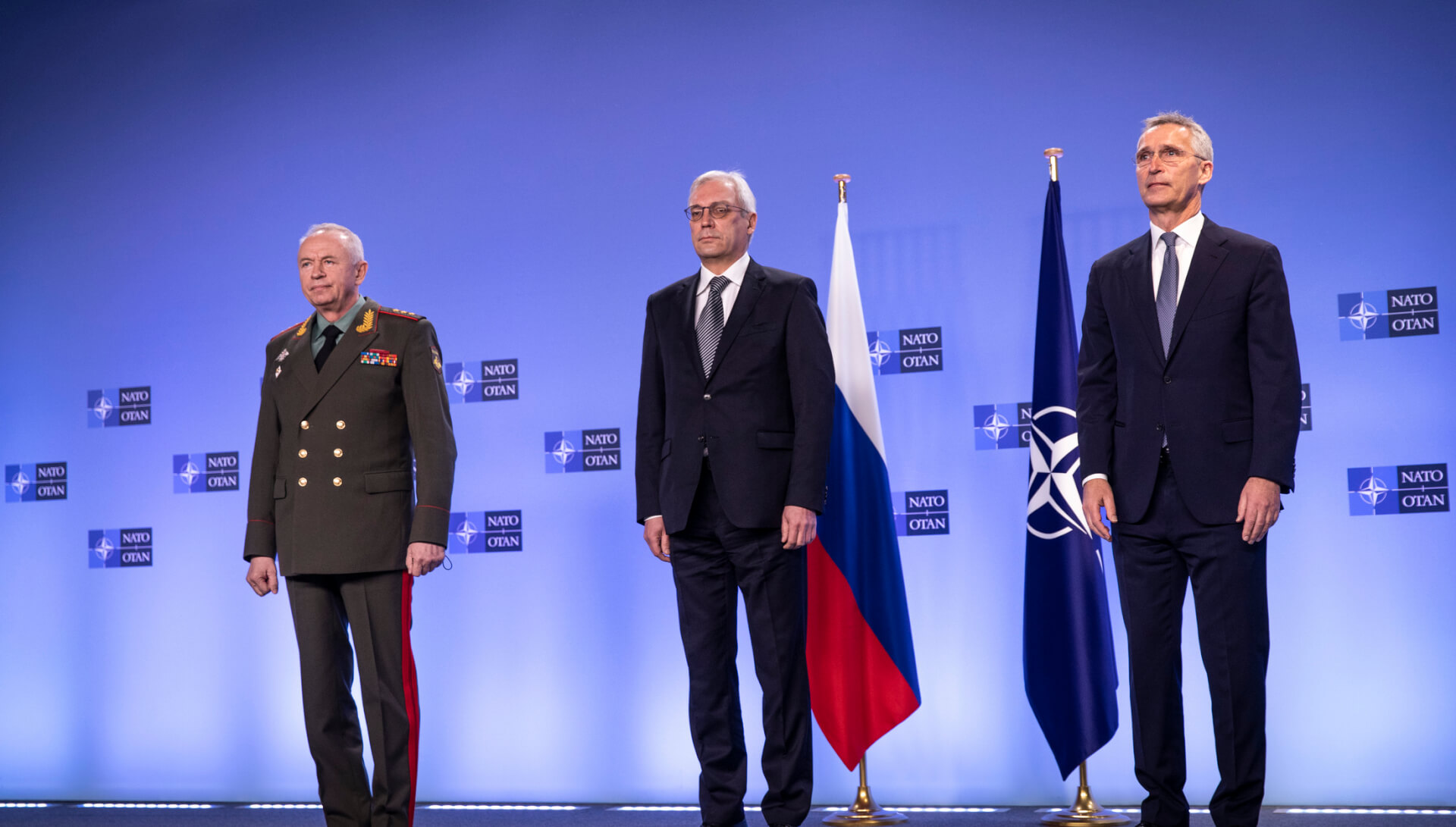On Wednesday, a Russian delegation headed by Deputy Defence Minister Alexander Fomin and Deputy Foreign Minister Alexander Grushko met with members of the North Atlantic Treaty Organisation (NATO) at Brussels to discuss Russian President Vladimir Putin’s security proposal regarding the ongoing border crisis with Ukraine.
NATO Secretary-General Jens Stoltenberg called the meeting a “defining moment for European security” as the two sides conducted a “very serious and direct exchange” regarding Ukraine. Stoltenberg confirmed that the talks centred around Russia’s security proposal, which was published in December, that urged NATO to halt Ukraine’s membership into the organisation and also made some demands over NATO’s military activity near Russia’s borders. Stoltenberg affirmed NATO’s “Open Door policy” adding, “Russia doesn’t have a veto on whether Ukraine can become a NATO member.”
The Bloc offered to address issues such as risk reduction, transparency on military activity, and arms control, “including reciprocal, verifiable limits on missiles.” However, according to Stoltenberg, Moscow was not ready to conduct those talks. Moreover, Stoltenberg called out Russia for violating the previous Intermediate-Range Nuclear Forces (INF) Treaty. Talking about NATO’s counterproposal to Russia over tensions in Ukraine, Stoltenberg said, “Russia was not in a position to agree on that proposal. They didn’t reject it either.”
United States (US) Deputy Secretary of State Wendy Sherman expressed her assessment of the NATO-Russia Council meeting and said that NATO Allies presented Russia with a “sober challenge.” Sherman declared Washington’s support for Ukraine and accused Moscow of fuelling the war in eastern Ukraine that has killed 14,000 people till now. Sherman mentioned that the meeting did not yield any commitment to de-escalation, adding, “It is Russia that has to make a stark choice: de-escalation and diplomacy or confrontation and consequences.” Sherman emphasised that the US and NATO look forward to the upcoming Organization for Security and Co-operation in Europe (OSCE) meeting at Vienna, which will lay down the path for future correspondence between all the parties.

Fomin expressed Moscow’s discontentment over talks with NATO, saying, “On the part of the alliance, Russian initiatives were ignored. This creates prerequisites for incidents and conflicts and undermines the foundations of security.”
Russian state media RIA Novosti reported that Grushko said Russia was ready to respond militarily if its demands were not met. “If NATO wants to cooperate with us, they need to consider Russia’s role as a guarantor of peace,” Grushko added. However, Grushko also highlighted Moscow’s support for diplomacy, indicating that Russia is willing to discuss this matter further.
Russia will take part in a final meeting at the OSCE’s Permanent Council summit in Vienna on January 13.

